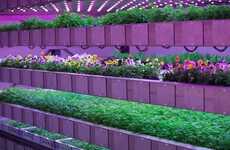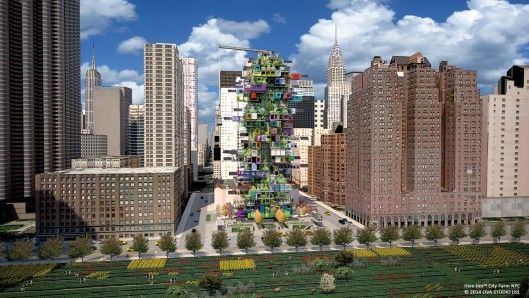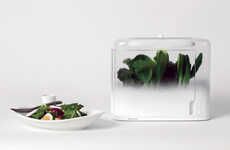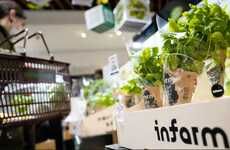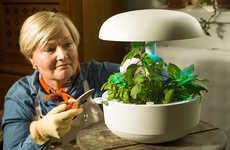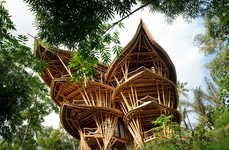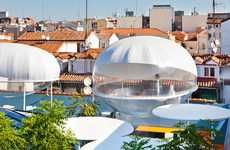
This City Farm Design Concept Aims to Localize Food Production
Rahul Kalvapalle — July 23, 2014 — Eco
The Hive-Inn City Farm is a concept city farm design whose modular build could enable it to become an efficient way of re-localizing food production. Conceived by OVA Studio, the concept is targeted towards New York City.
The concept building incorporates community kitchen gardens, neighborhood cooperatives and supermarkets selling locally grown produce directly from producers. It could be used to grow green vegetables, tomatoes, corn and even honey.
The structural basis of this urban city farm design is a vertical, modular structure consisting of a frame holding a bunch of shipping containers. The containers can be easily moved. Each container contributes not only to food production but also to energy harvesting and recycling.
OVA Studios is currently looking to raise $1.5 million which would allow it to conduct a feasibility study and build a prototype.
The concept building incorporates community kitchen gardens, neighborhood cooperatives and supermarkets selling locally grown produce directly from producers. It could be used to grow green vegetables, tomatoes, corn and even honey.
The structural basis of this urban city farm design is a vertical, modular structure consisting of a frame holding a bunch of shipping containers. The containers can be easily moved. Each container contributes not only to food production but also to energy harvesting and recycling.
OVA Studios is currently looking to raise $1.5 million which would allow it to conduct a feasibility study and build a prototype.
Trend Themes
1. Modular Urban Farming - This trend focuses on designing vertical, modular structures to localize food production in urban areas.
2. Community-driven Agriculture - This trend emphasizes the incorporation of community kitchen gardens and neighborhood cooperatives to support local food production.
3. Integrated Sustainability - This trend explores the integration of food production, energy harvesting, and recycling in urban farming designs.
Industry Implications
1. Architecture - Architects can explore innovative designs for modular urban farms to address the growing need for localized food production in cities.
2. Agriculture - Agricultural professionals can leverage the concept of community-driven agriculture to establish cooperative farming initiatives in urban areas.
3. Sustainable Technology - Companies specializing in sustainable technology can contribute to the development of integrated sustainability solutions for urban farming.
5
Score
Popularity
Activity
Freshness


